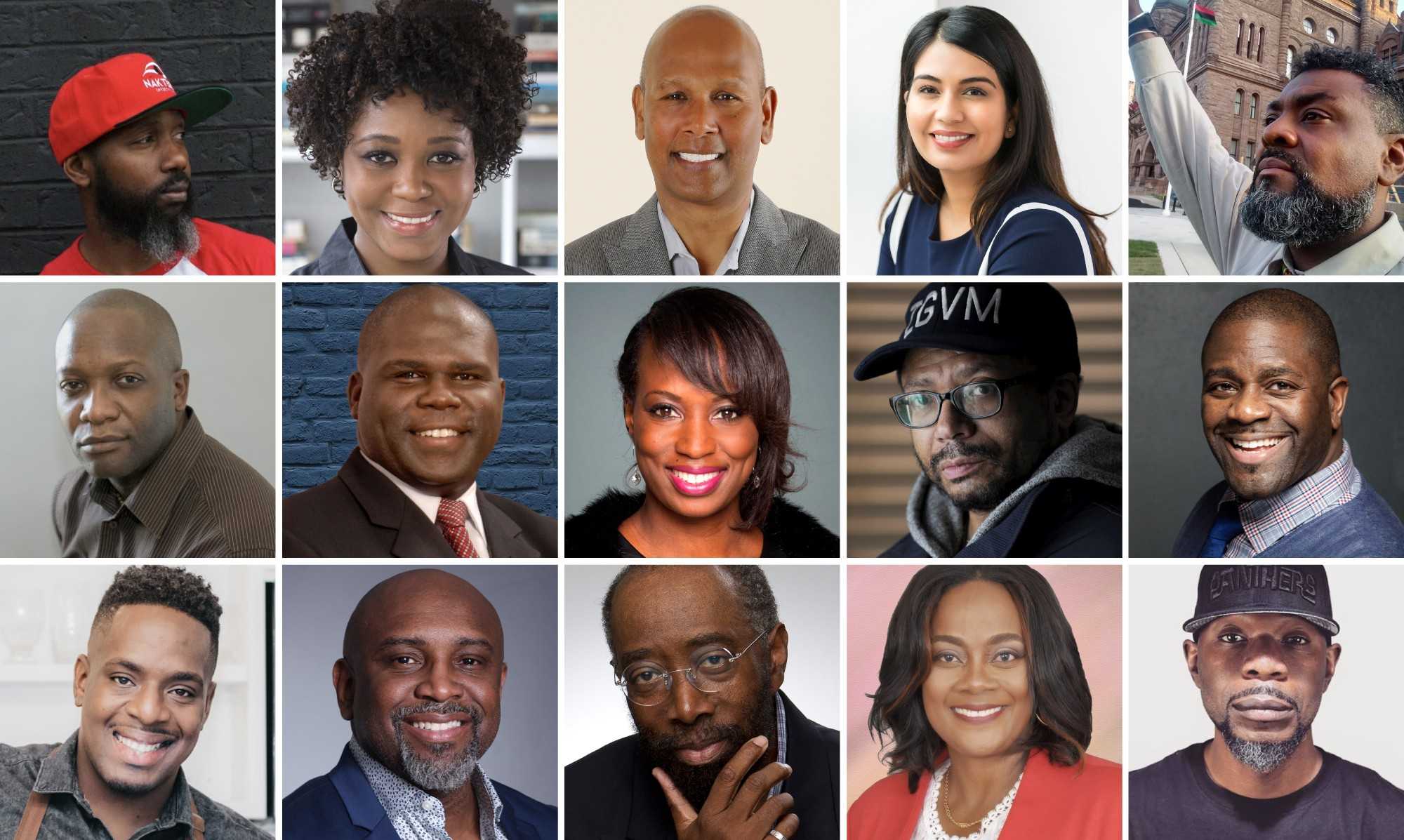on
BY SIMONE J. SMITH
Social media had become a frenzy of online interaction; sometimes it can become so overwhelming that we lose ourselves in the chaos. As a community, it is time to take a minute, step back and listen. The accumulated wisdom of our elders and leaders has always been the key to human survival. It is why stories are passed down through each generation. As a way to teach our future leaders how to examine their assumptions and make more conscious decisions about their own scripts for happiness.
Today, we as a community newspaper are doing just that. Providing a helpful guide for our younger people. We consulted with some of the most reputable, beloved, and prominent leaders in Toronto, and we asked for them to share what they have learned in the last decade. Each leader brings experiential knowledge about the many challenges human beings go through. People from their teens to middle age will find that the roadmap for life provided by these leaders, will help them to take a new look at their own situations, and to choose novel ways of living that will make them happy. Our job? We have to be willing to ask and listen.
Toronto, we present to you, “A Leaders Reflection; The Accumulated Wisdom of our Toronto Caribbean Community.
“A decade ago, due to the passing of a friend, I chose to follow through with my love of the arts by creating my 40@40 collection. Whether it takes a year or a decade, always stay the course!”
Mark Stoddart
“Keep moving forward in positivity knowing that victory is yours. Surround yourself with an amazing support system. You’re not Superwoman, it’s okay to ask for help.”
Lisa Wilkinson
Delta Sigma Theta Sorority, Inc.
President, Greater Toronto Area Alumnae Chapter
“The importance of quietude, gratitude and the right attitude in today’s frantic, fast paced and turbulent world”
Lyndon Taylor
Media & Communications Specialist
Finn Partners
“I have learned so much about myself. My ability to take risks, push the status quo and be bold, while remaining authentic. It’s powerful.”
Celina Caesar-Chavannes
Thought Leader and Consultant
“Spring always comes after Winter, Summer always follows Spring, and Fall always comes after Summer. Life goes in cycles, so PREPARE FOR THE SEASONS. Farmers do!”
Jerrold Johnson
“Time waits for no one. Slow, steady and focused wins the race. This decade has shown me that I can do anything at any age.”
Jillian Danford
Social Media Influencer and Actor
“This decade, I spent endless hours working. I woke up and saw an old man in the mirror. Now, I exit the express lane and cruise.”
Jay Brijpaul
Broker, BSc., FRI. The Brij Team
“Being only five years into the International Decade for People of African Descent (2015-2024), I have been blessed with opportunities to speak with African Elders who have taught me never to give up in the fight for black liberation. I’ve learned to use my tools wisely. To dig deep and find the courage needed to centre the needs of black community members in the work that I do. I stand on the shoulders of freedom fighters that did the same for me.”
MPP Laura Mae Lindo
Member of Provincial Parliament for Kitchener Centre
“I’ve learned that my spirit is unbreakable but the body is fragile. Health is Wealth and we must learn how to take care of ourselves.”
Dewitt Lee III
“Never give up, life will get tough, but keep pushing, everything happens for a reason. Also, take time to appreciate life, live in the moment; we don’t know what tomorrow will bring.”
MPP Sara Singh
Member of Provincial Parliament for Brampton Centre
“This past decade has taught me that in order for us as a people to achieve anything in this world; it will require collaboration, innovation, communication and commitment. We have to work full time for our happiness. No days off. Whatsoever.”
Dj Dave “Rankin” Lindsay
Managing Director Hear 2 Help
Black History Contributor/Reporter Toronto Caribbean Newspaper
“When moving to a new city, take time to enjoy the transition. Live in the moment while you adjust to your new environment and community.”
Angella Bennett
Regional Director, Canada, Jamaica Tourist Board
“As our community moves forward with current challenges and opportunities – never be the one to throw the first stone – but aim to be the first one to extend a hand of support.”
Louis March,
Founder, Zero Gun Violence Movement and Community Advocate
“The lesson I have learned from this past decade is that change is the only thing that is constant. You have to change with it.”
Selina McCallum
Photographer/Videographer
Production Manager, TCN TV Network
Junior Writer – Toronto Caribbean Newspaper
“The past decade revealed a “crisis of leadership” among the elites in education, politics and religion, creating a compelling need for intellectual revolution – globally.”
Errol Gibbs
Writer, Project Management Analyst
“Leave a legacy by helping as many people as possible”
Shaun C. Walsh
Producer of Whatz Up New York
“As Ministers who travel across the world, we have noticed that in the last ten years, immorality has been on the rise, especially amongst some of our leaders. It is time that people go back to their source, and begin to honour their creator.”
Dr. Joylyn, and Rueben Smith
Ordained Pentecostal Ministers
“Personal progress is like a plane about to fly. There will be turbulence but you have to remain steady, confident and fixed on your destination.”
Robert Small
Artrepreneur, LEGACY Enterprises
“The past decade has taught me that with everything trust the time and process. Be open for a change, because that’s when you will find the real you.”
Chef Noel Cunningham
“You are worthy of ALL that you truly desire, the key is being honest of what is and be willing to work to achieve it.
Lawrence E. Kerr, Brand Concierge and Photographer
“Do not be addicted to other people’s approval. Do not look for someone to make something happen for me. Money is not necessary to pursue your dream.”
Dr. Vibe (The Dr. Vibe Show)
The Prime Minister of Pertinent Information, Connector, Producer and Host
As Chief Reporter of the Toronto Caribbean Newspaper, I would like to thank all those who shared with us, and I am going to make a call to ACTION! We want to hear what the community would like to share, so please leave your words of wisdom on our Facebook Page, our Twitter Page, or our Instagram Page. In fifty years, when someone clicks on this digital footprint, I want him or her to see a community united. Passionate. Connected to each other, not by culture alone, but by an integral commitment to the betterment of others.
Stay in the loop with exclusive news, stories, and insights—delivered straight to your inbox. No fluff, just real content that matters. Sign up today!
We, as humans are guaranteed certain things in life: stressors, taxes, bills and death are the first thoughts that pop to mind. It is not uncommon that many people find a hard time dealing with these daily life stressors, and at times will find themselves losing control over their lives. Simone Jennifer Smith’s great passion is using the gifts that have been given to her, to help educate her clients on how to live meaningful lives. The Hear to Help Team consists of powerfully motivated individuals, who like Simone, see that there is a need in this world; a need for real connection. As the founder and Director of Hear 2 Help, Simone leads a team that goes out into the community day to day, servicing families with their educational, legal and mental health needs.Her dedication shows in her Toronto Caribbean newspaper articles, and in her role as a host on the TCN TV Network.













